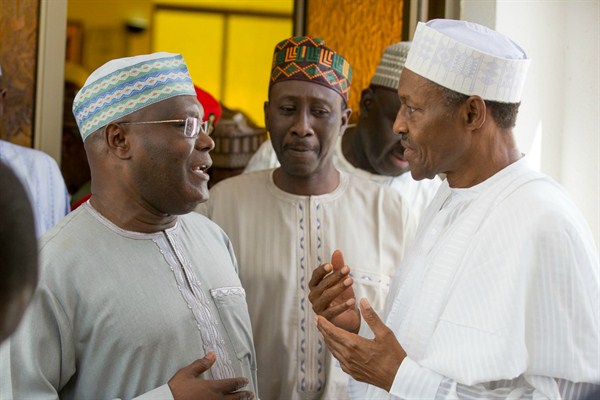He is often tagged as an aloof, slow-moving executive with a narrow and insular coterie of advisers, and he has fallen short of the promises that won him the presidency four years ago. Yet Muhammadu Buhari remains the front-runner in Nigeria’s presidential elections scheduled for Feb. 16, which will pit the incumbent against several challengers—the most prominent, by far, being former Vice President Atiku Abubakar, who served in office from 1999 to 2007 and placed third in the 2007 election. Buhari is still the favorite because of his party’s continued strength in its strongholds in northern and southwestern Nigeria, along with the considerable advantages of incumbency and some specific liabilities of Abubakar.
Buhari, who was the runner-up in three successive Nigerian elections before his upset victory over Goodluck Jonathan in 2015, has not transformed the country as he pledged. He inherited a struggling economy that fell into recession for over a year in 2016 and 2017. Although the economy is now growing again, extreme poverty affects at least half of Nigerians, and unemployment has, according to government statistics, doubled.
Buhari has also fallen short of meeting his two core campaign promises from 2015: curbing corruption and restoring security. Under Buhari, anti-corruption investigators claim to have recovered millions of dollars in stolen funds, including some $322 million stolen by former dictator Sani Abacha in the 1990s. Yet observers have cited a lack of transparency in plans to redistribute the funds, and critics charge that Buhari’s anti-corruption measures are partisan. In terms of security, Boko Haram continues to defy government proclamations of near-victory against the jihadist group with more attacks in the northeast. Other forms of violence—including farmer-herder conflicts and banditry—have also escalated in different parts of the country, including in some of the areas where support for Buhari was strongest in past elections.

